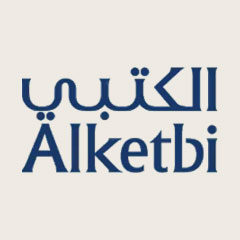Dubai Court Of Cassation’s Landmark Ruling On Arbitration: A Game Changer For Legal Costs And Third-party Agreements


On November 19, 2024, the Dubai Court of Cassation (DCC) issued a pivotal ruling that provides much-needed clarity on several critical issues surrounding arbitration.
Dubai:This landmark decision addresses the selection of the arbitration seat, the jurisdiction of the Abu Dhabi Global Market (ADGM) Courts regarding annulment claims of International Chamber of Commerce (ICC) awards, the interpretation of Article 38 of the ICC Rules concerning legal costs, and the extension of arbitration agreements to third parties.
Arbitration Seat Selection and ADGM Courts’ Jurisdiction
In this ruling, the DCC asserted that the ADGM Courts do not have jurisdiction over annulment claims related to ICC awards seated in Dubai. This determination was based on the parties’ agreement to Daftar Ceria158 designate Dubai as the seat of arbitration. The court emphasized that the presence of the ICC Representative Office in ADGM does not confer jurisdiction on the ADGM Courts for ICC arbitration awards seated in Dubai. The court highlighted the crucial distinction between the physical venue for hearings and the legal concept of the seat of arbitration, underscoring its significant implications for challenging arbitral awards.
Article 38 of the ICC Rules and Legal Costs
The DCC provided valuable insights into the interpretation of Article 38 of the ICC Rules, which permits arbitral tribunals to award legal costs, including attorney fees. This article allows tribunals to award “reasonable legal and other costs incurred by the parties for the arbitration.” The court clarified that the term “costs” is broad, encompassing various expenses, including legal fees. The court dismissed the argument that the absence of a specific mention of attorney fees in the article excludes them from being recoverable. The ruling referenced international arbitration practices and the ICC’s guidelines, which support the inclusion of legal fees as part of arbitration costs.
Extending Arbitration Agreements to Third Parties
Another critical issue addressed by the DCC was whether arbitration agreements could be extended to third parties who were not signatories. The court ruled that the party issuing instructions, rather than the one who physically signed the agreement, could extend the arbitration clause. As such, an agreement signed by a subsidiary could apply to the parent company, or vice versa, depending on which party had decisive authority during the contract’s formation or performance. This ruling aligns with legal principles that recognize the extension of arbitration agreements to closely related entities.
Implications & Conclusion
This ruling, along with recent decisions from the DCC, underscores the UAE’s commitment to enhancing its arbitration framework. Dubai is positioning itself as a premier center for international arbitration in the Middle East, creating a supportive legal environment for resolving arbitration disputes.
ALKETBI TOUCH
Our professional arbitration team can provide you with crucial support in understanding arbitration and ensuring compliance with the latest rulings. Our lawyers can offer expert guidance on the selection of the arbitration seat and jurisdiction issues, ensuring that agreements are drafted to reflect the parties’ intentions and minimize risks. We also assist you in managing arbitration costs, including advising on the recoverability of legal fees and other expenses under the ICC Rules. This and draft and review arbitration agreements to ensure they are enforceable and extendable to related entities, protecting your interests. In the event the dispute arise, we provide robust representation, leveraging the latest legal precedents to achieve favorable outcomes. Contact us to know more Situs ceria158 maxwin!



